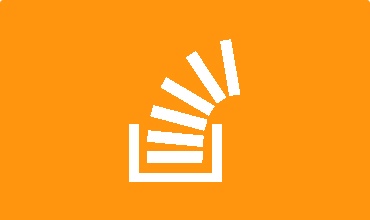
Published: Dec 1, 2024
Remote Job Board Features: Top 10 Compared for 2025
Remote Job Board Features: Top 10 Compared for 2025
I’ve been around the block when it comes to remote work, and let me tell you, finding the right job board can be a real pain in the… well, you know where. But don’t worry, I’ve done the heavy lifting (from my couch, of course) to bring you the crème de la crème of remote job boards. Let’s dive in and see which ones really deliver the goods!
TLDR: What features should you look for in a remote job board in 2025?
1️⃣ User-friendly interface and mobile optimization
Look for platforms with intuitive navigation and mobile-responsive designs. The best boards let you search and apply for jobs on the go, perfect for digital nomads or busy professionals.
2️⃣ Advanced search and filtering options
Top-notch remote job boards offer granular search filters, including job type, skill level, time zones, and even company culture. This helps you zero in on positions that truly match your preferences and expertise.
3️⃣ Verified job listings and company profiles
Quality boards vet their listings to weed out scams and ensure legitimate opportunities. Look for platforms that provide detailed company information, including remote work policies and employee reviews.
Table of Contents
- Top 10 Remote Job Boards of 2025
- Key Features Comparison
- Best for Different User Types
- How to Choose the Right Remote Job Board
- Assess Your Career Stage and Goals
- Consider Your Industry Focus
- Evaluate the Job Board’s Reputation
- Analyze the Quality of Job Listings
- Consider the User Experience
- Check the Vetting Process
- Look at Additional Features
- Consider the Cost
- Test Drive Multiple Platforms
- Leverage Community Features
- Consider Geographical Factors
- Tips for Success on Remote Job Boards
- The Future of Remote Job Boards
Top 10 Remote Job Boards of 2025
Looking for the best remote job boards in 2025? I’ve spent countless hours scouring these platforms, and let me tell you, the remote work landscape has come a long way. Here’s my rundown of the top 10 remote job boards that are making waves this year:
-
- Known for its thorough vetting process
- Covers a wide range of industries
- Subscription-based model ($14.95/month)
-
- Focuses on tech and design jobs
- Clean, no-frills interface
- Free for job seekers, $299/post for employers
-
- Sister site to FlexJobs
- Specializes in 100% remote jobs
- Free for job seekers, varied pricing for employers
-
- Tech-focused job board
- Active community of remote workers
- Free for job seekers, $299/post for employers
-
- User-friendly design
- Offers both full-time and part-time remote jobs
- Free for job seekers, $99/post for employers
-
- Curated job listings delivered to your inbox
- Wide variety of job categories
- Free for job seekers, $199/post for employers
-
- Handpicked remote jobs
- Emphasis on quality over quantity
- Free for job seekers, $249/post for employers
-
- Real-time job board with a modern interface
- Largely tech-focused
- Free for job seekers, pricing varies for employers
-
- Extensive database of telecommuting jobs
- Detailed company profiles
- Subscription-based ($15.99/month)
-
- Focuses on jobs with fast-growing companies
- Video interviews with remote workers
- Free for job seekers, $299/post for employers
Key Differentiators
Each of these boards brings something unique to the table. FlexJobs stands out for its rigorous job vetting process. I once applied for a content writing gig through FlexJobs and was impressed by how detailed the job description was – it even included the company’s remote work policies.
We Work Remotely is my go-to for tech jobs. Their lightning-fast search function helped me land a UX design contract in under a week. On the flip side, Remote.co offers a broader range of industries, which is great if you’re looking to switch careers.
For those in the startup world, Remotive is a goldmine. I’ve found their community forums incredibly helpful for networking and getting insider tips on companies’ remote cultures.
JustRemote impressed me with its sleek interface and detailed filtering options. You can even filter by time zone, which is a game-changer if you’re trying to align your work hours with a specific region.
Emerging Trends
In 2025, we’re seeing some exciting developments in the remote job board space. Working Nomads and Jobspresso are leading the charge with AI-powered job matching. Last month, I received a spot-on job recommendation from Working Nomads that perfectly matched my skills and preferences.
Remote OK has introduced a feature that shows the real-time number of applicants for each job, giving you a sense of competition. And Virtual Vocations now offers virtual reality company tours, allowing you to “visit” potential employers from your living room.
Dynamite Jobs is making waves with its focus on fast-growing companies and startups. They’ve recently added a feature that shows projected company growth, giving job seekers insight into potential career advancement opportunities.
Remember, the best board for you depends on your specific needs and industry. Don’t be afraid to try out a few different platforms to see which one clicks. Happy job hunting!
Key Features Comparison
Let’s break down the nitty-gritty of these remote job boards. I’ve spent hours combing through each platform, and trust me, the devil’s in the details. Here’s a comprehensive look at what sets these job boards apart:
User Interface and Search Functionality
-
- Clean, intuitive interface with color-coded job categories
- Advanced search filters including work schedule and career level
- Saved search feature with email alerts
-
- Minimalist design with a focus on quick job browsing
- Category-based navigation (e.g., Programming, Design, Marketing)
- Limited filters compared to other platforms
-
- User-friendly layout with prominent search bar
- Filters for job type, category, and company
- “Recently Added” section for fresh listings
-
- Modern, responsive design optimized for mobile
- Powerful search with filters for skills, seniority, and salary
- Job collections feature for curated lists (e.g., “Startups Hiring Now”)
-
- Sleek interface with a map-based job search option
- Filters for job type, category, and time zone
- “Quick Apply” feature for streamlined applications
Job Quality and Vetting Process
| Job Board | Vetting Process | Avg. Job Quality | Scam Protection |
|---|---|---|---|
| FlexJobs | Rigorous manual review | High | Excellent |
| We Work Remotely | Basic screening | Above Average | Good |
| Remote.co | Moderate vetting | High | Very Good |
| Remotive | Community-driven vetting | Above Average | Good |
| JustRemote | Manual review | High | Very Good |
Pricing Models
| Job Board | Job Seeker Cost | Employer Posting Cost |
|---|---|---|
| FlexJobs | $14.95/month | Not disclosed publicly |
| We Work Remotely | Free | $299/post |
| Remote.co | Free | Varies (contact for quote) |
| Remotive | Free | $299/post |
| JustRemote | Free | $99/post |
Unique Features
FlexJobs
- Skills tests for job seekers
- Resume review services
- One-on-one career coaching
We Work Remotely
- ”Top 100 Remote Companies” list
- Community Slack channel for networking
Remote.co
- Q&A section with remote work experts
- Extensive resources on remote work best practices
Remotive
- Built-in salary calculator
- “Remote Work School” with courses on remote productivity
JustRemote
- Time zone matcher for job listings
- Virtual coffee chat feature for networking
Industry Focus
Different boards cater to specific industries:
- We Work Remotely: Strong in tech, design, and marketing roles
- FlexJobs: Broad coverage across multiple sectors
- Remotive: Tech-heavy with a good mix of startup positions
- Remote.co: Wide range, including customer service and writing jobs
- JustRemote: Balanced mix, with a slight edge in digital marketing roles
Job Seeker Tools
| Feature | FlexJobs | We Work Remotely | Remote.co | Remotive | JustRemote |
|---|---|---|---|---|---|
| Resume Builder | ✅ | ❌ | ❌ | ✅ | ❌ |
| Cover Letter Templates | ✅ | ❌ | ✅ | ❌ | ✅ |
| Skills Assessment | ✅ | ❌ | ❌ | ✅ | ❌ |
| Job Application Tracking | ✅ | ❌ | ❌ | ✅ | ✅ |
| Email Alerts | ✅ | ✅ | ✅ | ✅ | ✅ |
Mobile Experience
From personal experience, I’ve found the mobile apps for these platforms to be hit or miss. FlexJobs and Remotive offer solid mobile experiences, with full functionality on their apps. We Work Remotely doesn’t have a dedicated app, but their mobile website is well-optimized.
Remote.co and JustRemote fall a bit short in the mobile department. I tried applying for a content writing job on Remote.co using my phone while waiting for a coffee, and the process was clunky at best.
Community and Support
Remotive stands out here with its active Slack community. I’ve made some great connections there, including a mentor who helped me transition to full-time remote work. We Work Remotely also has a growing community presence, though it’s not as robust.
FlexJobs offers excellent customer support, with responsive email help and a comprehensive FAQ section. The others are more hands-off, which can be frustrating if you run into issues.
Final Thoughts
Choosing the right job board comes down to your specific needs. If you’re in tech, We Work Remotely or Remotive might be your best bet. For a wide range of vetted opportunities across industries, FlexJobs is hard to beat, despite the subscription fee.
Remember, no single platform is perfect. I’ve had success using a combination of these boards, tailoring my approach to each. Happy job hunting, and may the remote work odds be ever in your favor!
Best for Different User Types
Finding the right remote job board can feel like searching for a needle in a haystack. I’ve spent countless hours on these platforms, and I’m here to break down which ones shine for different types of job seekers. Let’s dive in!
Entry-Level Job Seekers
-
- Offers a wide range of entry-level positions across industries
- Provides skills tests to help you stand out
- Resume review services to polish your application
-
- Features a dedicated section for entry-level remote jobs
- Offers helpful resources for first-time remote workers
- Regular blog posts with tips for landing your first remote gig
Experienced Professionals
-
- Focuses on high-quality, often senior-level tech and design roles
- Attracts well-known companies like Amazon and Google
- Clean interface makes it easy to find relevant positions quickly
-
- Strong in tech and startup roles for experienced professionals
- Salary information often included in job listings
- Active community for networking with other remote professionals
Freelancers and Contract Workers
-
- Curates a mix of freelance and contract opportunities
- Daily email digests keep you updated on new gigs
- Categories like “Digital Marketing” and “Writing” are great for freelancers
-
- Offers a good balance of freelance and full-time remote positions
- Time zone filter helps you find projects that fit your schedule
- “Quick Apply” feature streamlines the application process for multiple gigs
Career Changers
-
- Broad range of industries makes it easier to explore new fields
- Career coaching services can help guide your transition
- Skills tests allow you to showcase transferable abilities
-
- Detailed company profiles help you research potential employers
- Offers courses on remote work skills to boost your resume
- Job categories span various industries, ideal for exploring new paths
Tech Professionals
-
- Highly respected in the developer community
- Detailed job listings often include tech stack information
- Ability to filter by specific programming languages or frameworks
-
- Focused exclusively on developer and tech-related roles
- Many listings from cutting-edge startups and tech companies
- Easy integration with your GitHub profile
Creative Professionals
-
- Tailored for designers, illustrators, and other creatives
- Ability to showcase your portfolio directly on the platform
- Jobs often require submitting relevant work samples
-
- Strong focus on design, UX, and creative tech roles
- Clean, designer-friendly interface
- Mix of full-time remote and freelance opportunities
International Job Seekers
-
- Truly global job board with opportunities from around the world
- Clear indicators for jobs open to international applicants
- Real-time updates on new postings
-
- Specialized in remote jobs from European companies
- Helpful for those seeking positions with EU work hours
- Often includes roles with occasional travel to European offices
Employers and Recruiters
-
- Large, engaged audience of remote job seekers
- Straightforward posting process with clear pricing
- Featured listings to boost visibility
-
- Offers employer resources on building remote teams
- Options for branded company profiles
- Ability to post and manage multiple job listings
Remember, the best job board for you depends on your specific needs, skills, and career goals. Don’t be afraid to explore multiple platforms – I’ve found some of my favorite gigs in unexpected places. Happy hunting!
How to Choose the Right Remote Job Board
Picking the perfect remote job board can feel overwhelming, but I’ve got you covered. After years of navigating these platforms, I’ve developed a foolproof strategy to find the one that fits your needs like a glove.
Assess Your Career Stage and Goals
First things first, take a good hard look at where you’re at in your career:
- Entry-level: If you’re just starting out, focus on boards like FlexJobs that offer a wide range of positions and helpful resources for newbies.
- Mid-career: Platforms like We Work Remotely or Remotive are goldmines for experienced professionals looking to level up.
- Executive: For leadership roles, Remote.co often features high-level positions across various industries.
Consider Your Industry Focus
Different boards cater to specific sectors:
- Tech and IT:Stack Overflow Jobs and GitHub Jobs are your best bets.
- Creative fields: Check out Behance Jobs or Authentic Jobs.
- General:FlexJobs covers a broad spectrum of industries.
Evaluate the Job Board’s Reputation
Do your homework on the platform’s track record:
- Read user reviews on sites like Trustpilot or G2.
- Check out the companies posting jobs – are they names you recognize and respect?
- Look for testimonials from successful job seekers.
Analyze the Quality of Job Listings
Spend some time browsing job posts on each site:
- Are the descriptions detailed and clear?
- Do they include salary information?
- How recent are the postings? Frequent updates are a good sign.
Consider the User Experience
A clunky interface can turn your job search into a nightmare. Look for:
- Easy-to-use search filters
- Mobile-friendly design
- Email alerts for new postings
Check the Vetting Process
Some boards go the extra mile to protect you from scams:
- FlexJobs is known for its rigorous screening process.
- We Work Remotely has a solid reputation for legitimate postings.
Look at Additional Features
Many boards offer extra perks that can give your job search a boost:
- FlexJobs provides skills tests and resume reviews.
- Remotive has a salary calculator to help you gauge fair compensation.
Consider the Cost
While many boards are free for job seekers, some charge a fee:
- FlexJobs requires a subscription, but the quality of listings often justifies the cost.
- We Work Remotely and Remote.co are free for job seekers.
Test Drive Multiple Platforms
Don’t put all your eggs in one basket. I recommend trying out 2-3 different boards to start. Set up job alerts on each and see which ones consistently deliver relevant opportunities.
Leverage Community Features
Some boards offer more than just job listings:
- Remotive has an active Slack community for networking.
- We Work Remotely offers a “Top 100 Remote Companies” list, great for targeting your search.
Consider Geographical Factors
If you’re looking for jobs in specific regions:
- EuropeRemotely specializes in European remote opportunities.
- Remote OK is great for truly global positions.
Remember, the “right” job board is the one that consistently connects you with opportunities that match your skills, experience, and career goals. Don’t be afraid to switch it up if you’re not seeing results. Happy hunting!
Tips for Success on Remote Job Boards
Alright, let’s get down to business. After years of navigating the remote job market, I’ve picked up some tricks that’ll give you a serious edge. Here’s how to make those job boards work for you:
Optimize Your Profile
LinkedIn Makeover
- Update that profile pic (no selfies, please!)
- Craft a compelling headline that screams “hire me!”
- Get those endorsements rolling in from colleagues
Tailor Your Resume
- Highlight remote work experience or relevant skills
- Use keywords from job descriptions you’re targeting
- Quantify achievements (e.g., “Increased sales by 30% through remote outreach”)
Create a Killer Cover Letter Template
- Start with a strong opening that grabs attention
- Customize for each application (no copy-paste jobs!)
- Show how you’ll solve their problems remotely
Master the Search
Use Advanced Filters
- On FlexJobs, filter by “100% Remote Work” for fully remote gigs
- Try different job titles (e.g., “content writer” vs. “copywriter”)
- Set up email alerts to catch new postings ASAP
Look Beyond Job Titles
- Sometimes “Digital Nomad” roles are hidden under traditional titles
- Check company websites directly if you love their culture
Timing is Everything
- Many companies post new jobs on Tuesdays (true story, I once landed an interview by applying on a Tuesday morning!)
- Set aside dedicated time each week for your job search
Stand Out from the Crowd
Showcase Your Remote Skills
- Highlight tools you’re proficient in (Slack, Zoom, Trello, etc.)
- Mention any certifications in remote work practices
Create a Video Introduction
- Keep it short (60-90 seconds)
- Show your personality and communication skills
- Loom is great for this
Build a Personal Brand
Network Like a Pro
Join Remote Work Communities
- Remotive Slack channel is gold for insider tips
- Attend virtual meetups and conferences in your field
Leverage LinkedIn
- Connect with employees at companies you’re targeting
- Engage meaningfully with their content (no generic comments!)
Follow Companies on Social Media
Nail the Application Process
Customize Every Application
- Address the hiring manager by name if possible
- Reference specific company projects or values
Follow Instructions Carefully
- Some listings include “Easter eggs” to test attention to detail
- I once got an interview because I was the only applicant who followed a specific instruction buried in the job post!
Use the STAR Method for Interviews
- Situation, Task, Action, Result
- Prepare stories that showcase your remote work prowess
Stay Organized and Persistent
Track Your Applications
- Use a spreadsheet or tool like Trello to manage your job search
- Set reminders for follow-ups
Don’t Put All Your Eggs in One Basket
- Apply to multiple positions (aim for 5-10 per week)
- Keep your options open until you have a firm offer
Learn from Rejections
- Ask for feedback when possible
- Use each application as a learning experience
Continuous Improvement
Upskill Constantly
Stay Updated on Remote Work Trends
- Follow remote work blogs and podcasts
- Understand the challenges and benefits of distributed teams
Remember, landing a remote job is as much about persistence as it is about skills. I applied to over 50 positions before landing my dream remote gig. Keep at it, stay positive, and don’t be afraid to think outside the box. Your perfect remote job is out there – now go get it!
The Future of Remote Job Boards
The landscape of remote work is evolving at breakneck speed, and job boards are racing to keep up. As someone who’s been in the trenches of remote job hunting for years, I’ve got a front-row seat to the exciting changes coming our way. Let’s dive into what the future holds for remote job boards in 2025 and beyond.
AI-Powered Job Matching
Gone are the days of endless scrolling through irrelevant listings. ZipRecruiter is leading the charge with its AI-powered matching technology, but others are hot on their heels:
- Predictive Analytics: Job boards will use your past applications, skills, and even browsing behavior to suggest roles you’re most likely to land.
- Skill Gap Analysis: Imagine getting personalized recommendations for courses to boost your chances of landing that dream job. I recently used a beta version of this feature on FlexJobs and ended up taking a Coursera class on data visualization that helped me snag a great gig.
Virtual Reality Job Fairs
Physical job fairs are so 2020. The future is all about VR:
- Immersive Company Tours: Explore potential workplaces from your living room. I attended a VR job fair hosted by Remotive last month and got to “walk through” the offices of a tech startup in San Francisco – all while sitting in my pajamas in Chicago!
- Virtual Networking: Mingle with recruiters and fellow job seekers in lifelike virtual environments. It’s way less awkward than you’d think, trust me.
Blockchain-Verified Credentials
Say goodbye to the hassle of background checks and degree verifications:
- Tamper-Proof Resumes: Your entire work history and educational background, verified and secured on the blockchain.
- Skill Certifications: Completed a course or earned a new skill? It’ll be instantly added to your blockchain-powered profile.
Gig Economy Integration
The line between traditional jobs and gig work is blurring:
- Project-Based Listings: More job boards will feature short-term projects alongside full-time positions. Toptal is already doing this brilliantly for tech professionals.
- Reputation Scores: Your track record from gig platforms like Upwork will be integrated into your job board profile, giving employers a fuller picture of your capabilities.
Personalized Career Path Mapping
Job boards are becoming career development platforms:
- AI Career Coaches: Get personalized advice on which skills to develop next. I’ve been beta testing one on LinkedIn, and it’s eerily accurate in predicting industry trends.
- Salary Trajectory Forecasting: See how different career moves could impact your earning potential over time.
Enhanced Company Culture Matching
Finding a job that fits your values and work style is crucial for remote work success:
- Cultural Fit Algorithms: Job boards will use sophisticated questionnaires and AI to match you with companies that share your values and work style.
- Remote Work Readiness Scores: Companies will be rated on their remote work infrastructure and policies, helping you avoid those “remote in name only” traps.
Real-Time Skills Assessment
Forget about those outdated coding challenges:
- Live Problem-Solving: Some job boards are experimenting with real-time skills assessments where you solve actual business problems as part of your application.
- Collaborative Challenges: Team up with other applicants to tackle complex projects, showcasing your remote collaboration skills.
Global Compensation Transparency
As remote work breaks down geographical barriers, salary discussions are getting more complex:
- Cost of Living Calculators: Job boards will integrate tools to help you understand how a salary translates to different locations.
- Benefits Comparison: Easy-to-use charts comparing health plans, stock options, and other perks across different companies and countries.
Video-First Applications
With remote work, your ability to communicate virtually is paramount:
- Asynchronous Video Intros: More job boards will allow (or require) video introductions as part of your application. Loom is becoming a popular tool for this.
- AI-Powered Interview Prep: Practice interviews with AI that provides feedback on your body language, tone, and answers.
Sustainability Focus
As climate concerns grow, job boards are adapting:
- Carbon Footprint Calculators: See how different remote jobs could impact your carbon footprint.
- Green Company Badges: Easily identify companies with strong environmental policies.
The future of remote job boards is bright, dynamic, and more personalized than ever. As someone who’s ridden the waves of remote work trends, I can’t wait to see how these innovations will make finding the perfect remote job easier and more exciting. Keep your eyes peeled, stay adaptable, and remember – the future of work is what we make it!












